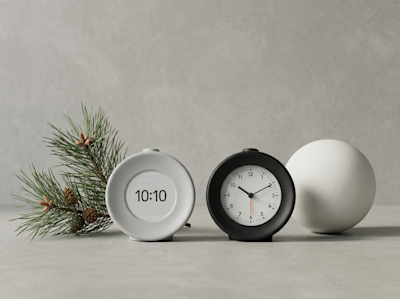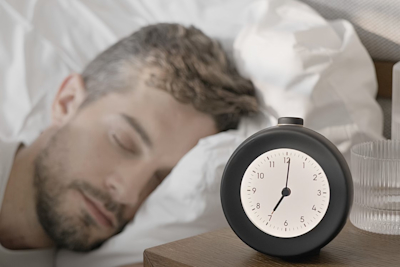
How indoor air quality affects your sleep
Is there something in the air?
Home—that place you go when work and school are done, where you can relax and recharge. However, did you know that indoor air quality could be affecting your sleep? Indoor air pollution can trigger allergies and other breathing problems. It can also worsen existing conditions such as asthma or COPD. The good news is that there are some easy ways to improve the air quality of your home—and as a result, help yourself get better sleep.
Indoor air pollution is a real thing.
Air pollution, though often thought of as an outdoor problem, also occurs indoors and can cause serious health issues. It's not just a term that you read in the news, or something you see on TV. Air pollution can be caused by both outdoor and indoor air, as well as household products. In fact, it can really mess with your health—even make it harder to sleep!
Indoor air pollution comes from many different sources: cigarette smoke, secondhand smoke (from other people smoking cigarettes), pet dander and hair (like when our pets shed), dust mites in mattresses and pillows, pollen carried into the house on shoes or clothing...the list goes on. If you're exposed to enough of these pollutants over time—and if they're concentrated in one place—your risk for health problems increases. As a result of this exposure, allergy and asthma symptoms could get worse. In serious cases, you can even develop more critical diseases.
Dirty air can make it harder to fall asleep.
The quality of your sleep can be impacted by all sorts of things, including your diet, the temperature of your room and whether or not you've been exposed to any sort of air pollution.
Indoor air pollution is a real thing—and it's something that can make it harder to fall asleep. This type of pollution doesn't just happen outside; indoor pollutants are likely contributing to poor sleep quality as well.
One example of this is secondhand smoke from cigarettes and other tobacco products. However, there are also other sources inside our homes and workplaces that could be hurting our sleep. Indoor air pollutants can come from many sources, including:
Vapors and gasses from new materials or products (like paint or carpet)
Fumes from household cleaners and other chemicals
Smoke from cigarettes, cigars and pipes
Dust mites in bedding or upholstered furniture
Allergens such as pet dander, pollen or dust
Air pollution can also impact your sleep quality.
You might not realize it, but your indoor air quality is connected to your sleep quality. Pollution can negatively impact the brain and body, causing fatigue, headaches and memory loss. It's also been linked to asthma and heart disease.
If you live in a city with lots of pollution (really any urban area), it may be hard for you to get a good night's rest. If you—or a loved one—are experiencing symptoms that may be related to air pollution, consider making some changes to your living environment or running an air purifier while sleeping.
Air pollution can worsen existing conditions.
Air pollution inside homes and other buildings can also exacerbate respiratory problems such as asthma, allergies or emphysema. If you have a condition that is worsened by air pollution, it’s important to know the following tips:
Use any medications as prescribed. The right medication at the right time can make a big difference in how well you feel during an episode of indoor air quality issues. Your doctor may also prescribe additional medications to help treat symptoms while they last.
Avoid pollen triggers if possible. For example: If you are allergic to pollen and notice symptoms like sneezing or a runny nose when there is high pollen in the area outside your home, consider keeping windows closed as much as possible during periods of high pollen activity (usually springtime). Or try using a HEPA filter in your vacuum cleaner or central heating/cooling system so that indoor dust levels can be controlled indoors before it gets released into your home's environment again through normal use of these appliances.
Seal off rooms with pets from other areas where people spend most time sleeping; this will limit pet dander from entering those areas where people sleep.
Consider changing bedding regularly if your pet sleep on beds or mattresses near bedrooms; this removes any pet dander that could trigger allergies while sleeping.
Be sure that bedrooms receive adequate ventilation.
Use plants to purify the air in your home.
Plants are not only good for the environment, they can help clean your home's air. Some plants are better than others at this task, however all of them can be used to purify the air in your bedroom and provide you with a healthier night's sleep. If you're unsure where to start, start with something small like a plant that releases oxygen into the air: spider plants or philodendrons are great for this because they don't require a lot of care and thrive on direct sunlight (which makes them easy for most people living in cities). If you're looking for other options, check out our article on the perfect plants for your bedroom.
Plants help purify the air because they absorb carbon dioxide, which is one of the reasons that they need sunlight to grow well. The more plants around your home, the better!
Clean up your cleaning products.
If you do use cleaning products, make sure they're not loaded with toxic chemicals. A good rule of thumb is that if it smells too strong, don't use it.
Avoid using aerosols and products with strong odors; instead, look for cleaning supplies that are safe to use around children and pets (or better yet, go the DIY route). Don't forget to check the labels before purchasing—even seemingly benign items like dish soap can have harmful ingredients in them!
Invest in an air purifier.
If you don't have an air purifier, consider getting one. These devices help clean the air around your home, which will make for a better night's rest—especially if you're sensitive to allergens like dust and pollen. Most high-quality models can filter out these airborne irritants, as well as mold spores and pet dander, if they're a problem in your house.
Please keep in mind that some air purifiers can be noisy; some models reach 70 decibels (dB), which is on par with the noise level of a garbage disposal or a dishwasher running in full blast. On the plus side, some companies sell quieter versions that run at about 50 dB; look for one of these if you want to sleep soundly knowing that your lungs are protected without having to endure loud machinery nearby!
Changing small things in your home can help improve the indoor air quality and help you get better sleep.
You can make your home healthier by switching to natural cleaning products, changing the air filters in your furnace and AC once a year. If you're not sure how often this should be done—or don't know where your air filters are located or how to change them—talk to an HVAC professional or look up the manufacturer's recommendations online.
Use plants to purify the air — they absorb carbon dioxide and release oxygen, which helps improve indoor air quality while keeping it fresh!
Use an air purifier: This is probably one of our favorite ways because these things work well AND they're super affordable too!
Bottom Line
Air quality at home can be improved by making a few changes in the way you live. These adjustments will help make for a more restful sleep, and may also lessen symptoms of respiratory conditions like allergies or asthma.
If you are looking to improve your sleep quality in order to be more productive, have more energy, and positively impact your overall well-being, you’re in the right place.
We invite you to take a look at our Sleep Better resource page which covers all the important factors that impact our quality of sleep. Also, please check out similar articles featured on our blog and learn more about proven tips for better health and overall well-being.
You might also consider joining our FORUM Community where we discuss ideas and exchange information about all things connected to wellness and digital well-being.
Related stories

Why a Mudita Alarm Clock is The Most Sought-After Gift Of 2025?
Give a meaningful gift this season. Discover why Mudita’s alarm clocks are the top choice for better sleep, calmer mornings & intentional living in 2025.

7 Science-Backed Benefits of Waking Up with an Analog Alarm Clock
Your smartphone alarm is sabotaging your sleep. Discover 7 science-backed benefits of analog alarm clocks- better sleep cycles, less anxiety, improved focus.

Seven Books That Will Deepen Your Mindfulness Practice
Explore 7 science-backed mindfulness books to reduce stress and cultivate inner peace. Expert picks from Jon Kabat-Zinn, Thich Nhat Hanh & more for all levels.
If you'd like to receive the best stories from our blog, keep up to date with our progress and get notified about our product releases and special discounts.